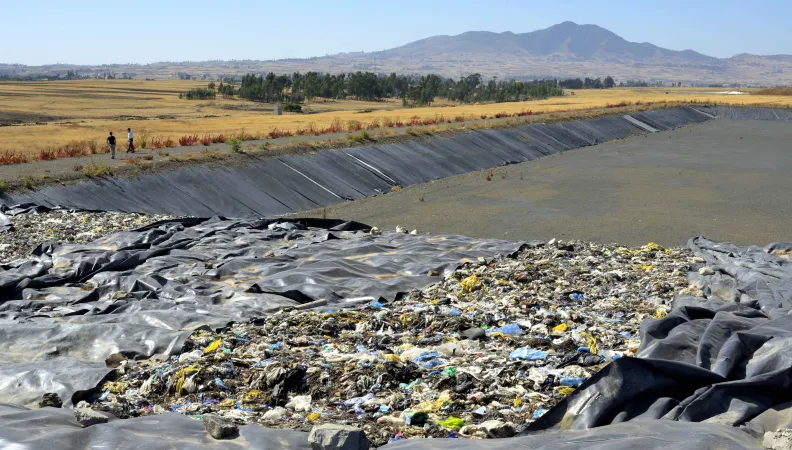Share the page
New sanitary landfill in Addis Ababa
Project


-
Project start date
-
-
Project duration
-
5 years
-
AFD financing amount
-
€ 20000000
-
Country and region
-
Location
-
Addis Ababa
-
Type of financing
-
Beneficiaries
-
Addis Ababa Municipality
Solid waste management is a major challenge for the municipality of Addis Ababa. This project has built a sanitary landfill accommodating non-hazardous and hazardous waste, an access road to the facility and two transfer stations for an improved collection.
Context
Ethiopia has an urban population growth of 4% a year. The country is facing a significant challenge: by 2020, 30% of Ethiopians are expected to live in cities, against 18% in 2013. The capital Addis Ababa should see its population double by 2022.
This strong population growth is combined with a sustained economic development that has been undergoing for several years.This combination has triggered changes in ways of life and consumption, which can be seen with the increase in solid waste production: 900 tons are produced every day. This waste has to be collected, transported and buried in the Koshe Reppi landfill, which has been opened since 1964.
Description
AFD’s financing has allowed the construction of a sanitary landfill for hazardous and nonhazardous waste with an indicative 20-year lifespan and respecting international standards, as well as its access road located in the suburbs of the city.
The sanitary landfill was commissioned in March 2016 and is waiting for Ethiopian authorities for opening.
This will lead to the closing and rehabilitation of the current landfill.
Impacts
The construction and opening of the new sanitary landfill will allow the closing of the current dumpsite located in the heart of the city: the urban environment will therefore be significantly improved, as well as living conditions for people who will not have to suffer from the disturbances brought by the continuous inflow of waste (smoke, smells, groundwater penetration…).
Furthermore, the municipal authorities, supported by AFD, will define and implement a long-term waste management policy.


